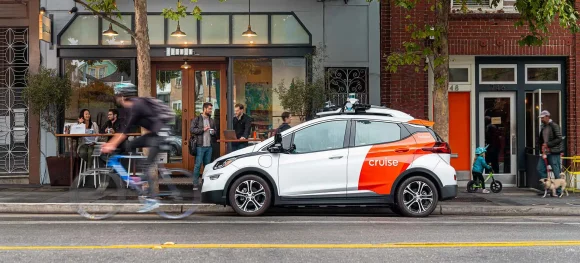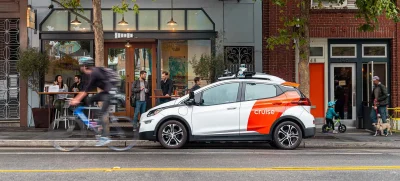In a surprising turn of events, the California Department of Motor Vehicles (DMV) has announced that it has suspended the driverless permits of Cruise.
The company owned by General Motors (GM), has lost its permits to operate driverless vehicles in the state, effective immediately. The suspension, prompted by a series of safety-related concerns, raises questions about the future of autonomous vehicle technology.
Cruise faces regulatory battle
While it remains uncertain if this action is directly linked to a recent incident where a Cruise robotaxi was involved in a collision with a pedestrian in San Francisco, the implications are substantial.
The California DMV, in an email statement provided to Engadget, cited specific safety-related regulations that led to this unprecedented move:
- 13 CCR §228.20 (b) (6): This regulation enables the DMV to determine that the manufacturer’s vehicles are unsafe for public operation based on their performance.
- 13 CCR §228.20 (b) (3): It holds the manufacturer accountable for any misrepresentation of safety-related information concerning the autonomous technology of its vehicles.
- 13 CCR §227.42 (b)(5): This regulation considers any act or omission by the manufacturer or its representatives as grounds for suspending autonomous vehicle testing if it poses an unreasonable risk to the public.
- 13 CCR §227.42 (c): Immediate suspension or revocation of permits is mandated if a manufacturer engages in practices that demand swift action for public safety on the roads.
The DMV, however, outlined a path for Cruise to regain its permits. The company must fulfill all requirements to the department’s satisfaction before approvals are granted. The suspension, crucially, does not impact Cruise’s ability to test autonomous vehicles with safety drivers.
The rocky road
This development comes at a critical juncture when Cruise and Waymo received approval to operate fully autonomous cars in San Francisco earlier in the year, even charging fares around the clock.
Previously, Cruise had agreed to limit its fleet and roll out safety updates to its cars, but the recent suspension puts a halt to these operations, at least temporarily.
The implications of this decision extend beyond Cruise, raising broader questions about the future safety and regulation of autonomous vehicles. Of course, Cruise CEO Kyle Vogt doesn’t agree with this sentiment. A month ago, he proudly punted that autonomous vehicles are much safer than human-driven vehicles.
As the industry navigates this setback, stakeholders eagerly await Cruise’s response and the DMV’s future decisions, which will shape the trajectory of autonomous driving technology in California and, potentially, worldwide.











